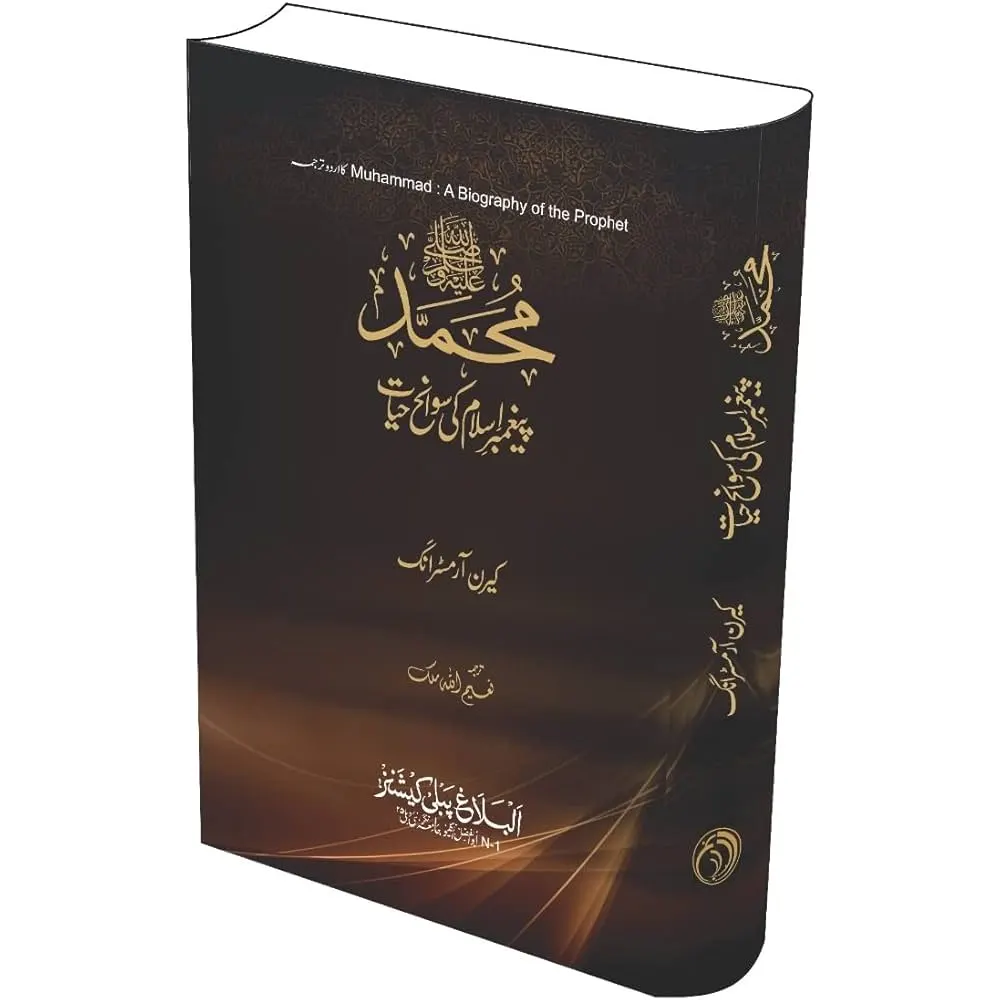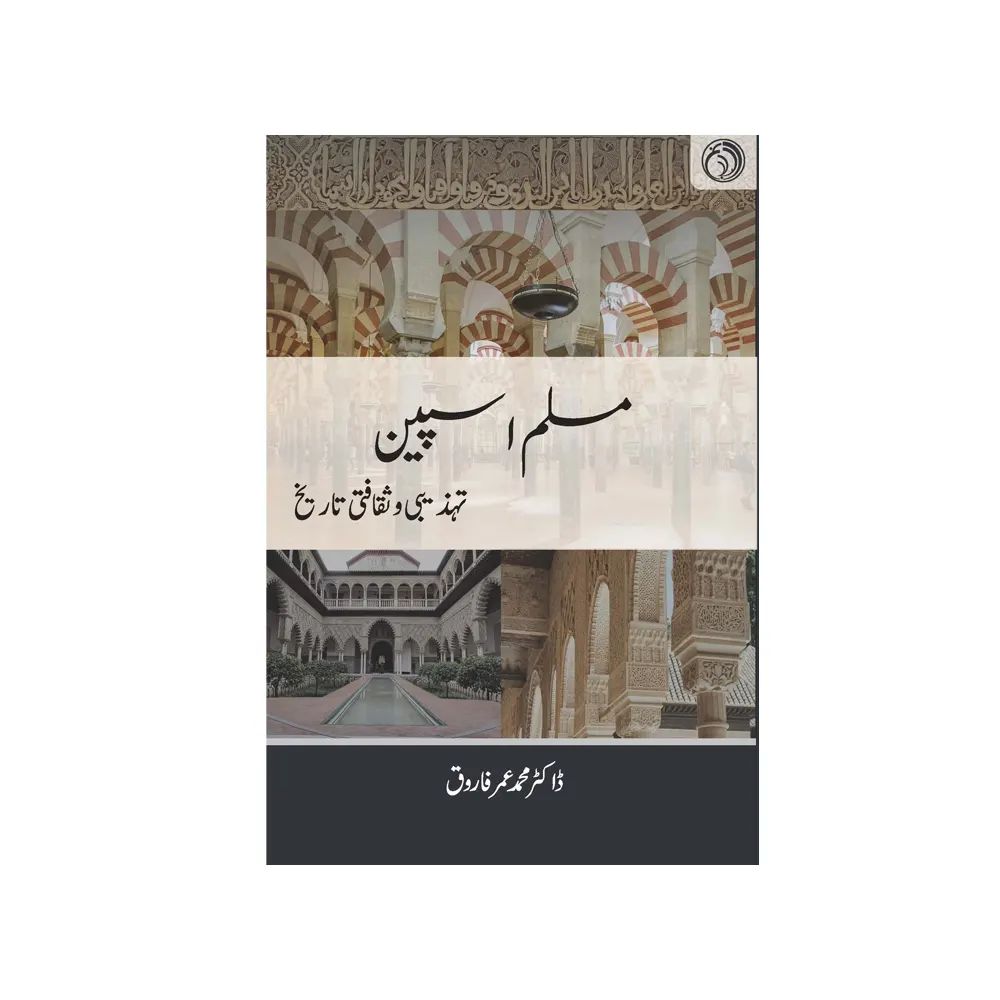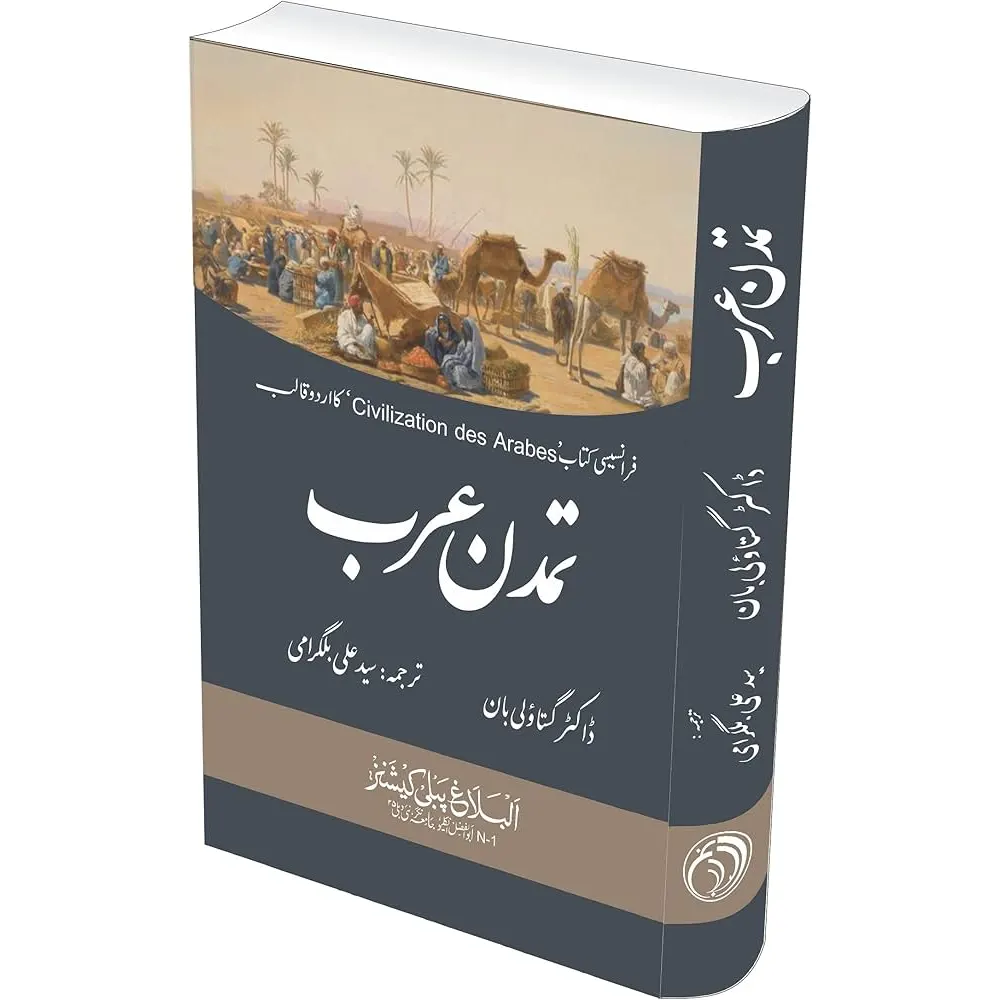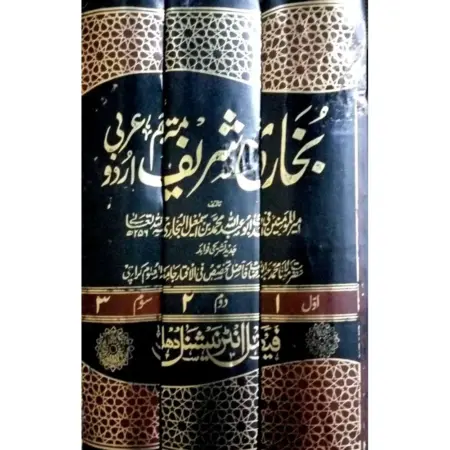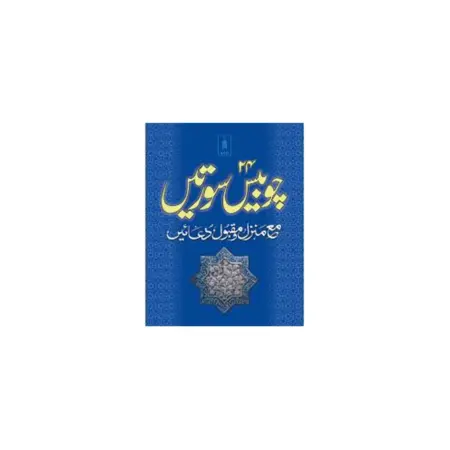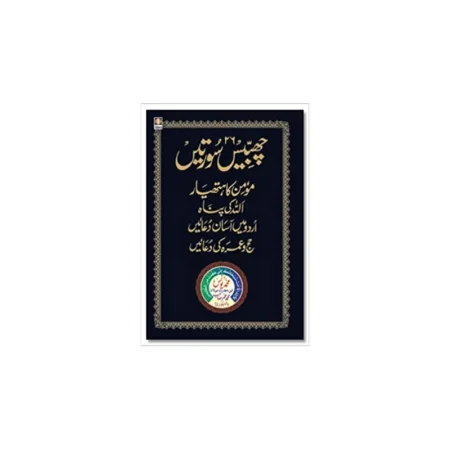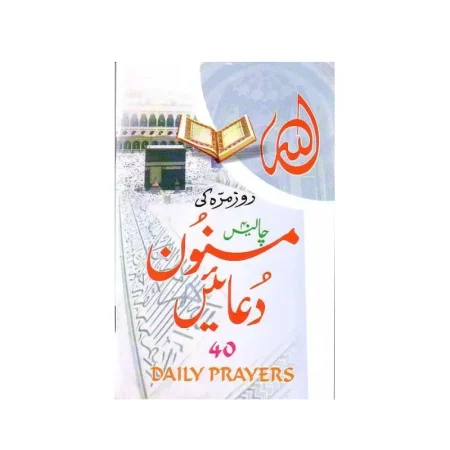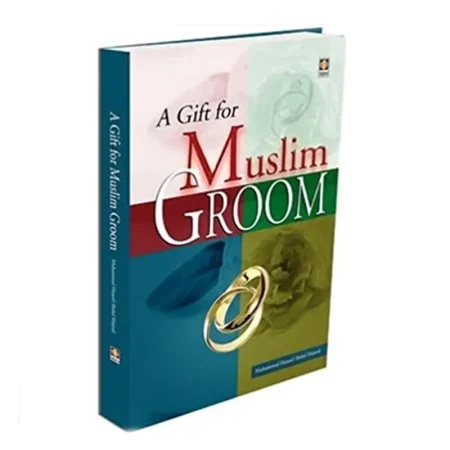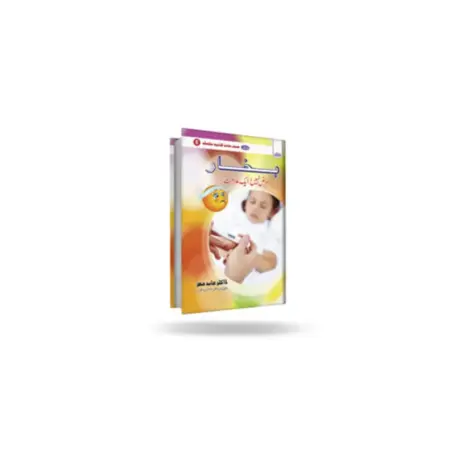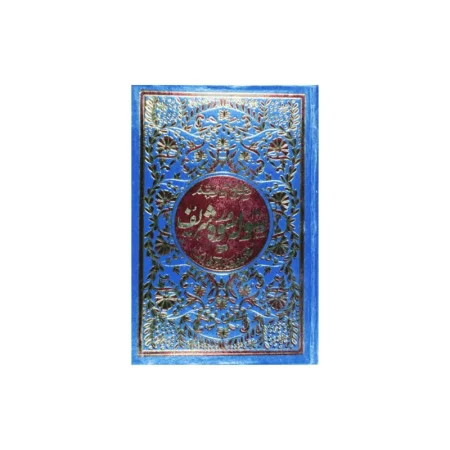Muhammad A Biography Of The Prophet Karen Armstrong Al Balagh Urdu
₹600.00 Original price was: ₹600.00.₹480.00Current price is: ₹480.00.
- Name: Muhammad A Biography Of The Prophet
- Writer: Karen Armstrong
- Publisher: Al Balagh
- Language: Urdu
- Delivery & Return
How Does The Delivery Process Work ?
- Once Our System Processes Your Order, Your Products Are Inspected Thoroughly To Ensure They Are In Perfect Condition.
- After They Pass Through The Final Round Of Quality Checks, They Are Packed And Handed Over To Our Trusted Courier Partners.
- Our Delivery Partners Then Bring The Package To You At The Earliest Possibility. In Case, They Are Unable To Reach Your Provided Address Or At A Suitable Time, They Will Contact You To Resolve The Issue.
How Are Items Packed ?
We Package Our Products In Corrugated Boxes, Which Are Covered With 3 Layer Protection. Each Individual Product Is Packed In Bubble Wrap While Fragile Items Like Bottles Are Safely Secured With Additional Bubble Wrap. We Pride Ourselves On The Quality Of Our Packaging.What Is The Range Of Locations To Which Daarul Kitab & Islamic Store Ships It’s Products ?
We Shipped Our Products Pan India!My Order Has Been Shipped, How Can I Track It ?
Once Your Order Has Been Dispatched, You Will Receive An Email And SMS With Tracking Details.You Can Track The Status Of Your Order Within 24 – 48 Hours After Your Order Is Dispatched From Our Warehouse.Following Are Some Of Our Trusted Courier Partners: eKart Logistics, BlueDart, Delhivery, Xpressbees, Ecom Express, DTDC & ShadowfaxWhat Is The Estimated Delivery Time ?
It Takes 3-7 Business Days To Deliver The Order Once Order Has Been Dispatched.Though We Keep 95% Of Our Catalog In Our Inventory, Certain Products Need To Be Sourced Directly From The Brand Itself So That We Can Live Up To Our Promise Of Providing Fresh, Non-expired Products.Are There Any Shipping Charges Applicable To My Order ?
We Have Different Shipping Charges For Different Zones Which Start From 60₹ To 100₹ Is Applied To All Orders Below ₹1999, While There Is Free Shipping For All Orders Above ₹1999Note: Please Take A Video/Photos While Opening A Order You Received We Need It If Anything Goes Wrong With You Order Between Journey Of Our Warehouse To Your Doorstep, If You Find Order Is Damaged Or Intact Please Do Not Accept The Order Delivery .
Disclaimer: Any Complaints Related To Product/Delivery Should Be Brought To Our Notice Within 48 Hours From The Time Of Delivery.
Help
Give us a shout if you have any other questions and/or concerns. Email: support@daarulkitab.com Phone: +918755553311 WhatsApp: +918755553311
Muhammad A Biography Of The Prophet Karen Armstrong Al Balagh Urdu
Overview: “Muhammad: A Biography of the Prophet” by Karen Armstrong provides a detailed and insightful biography of the Prophet Muhammad (PBUH). The book aims to present a balanced and respectful portrayal of the Prophet, highlighting his significance in the history of Islam and the world. Written by a renowned author and historian, the biography explores the life, teachings, and historical context of the Prophet Muhammad (PBUH), offering a comprehensive understanding of his role as the founder of Islam.
Key Themes:
1. Early Life and Background:
- The book begins with the early life of Muhammad (PBUH), including his birth, family, and upbringing in the city of Mecca.
- It explores the social, economic, and religious context of pre-Islamic Arabia.
2. Revelation and Prophethood:
- Karen Armstrong delves into the pivotal moment of Muhammad’s (PBUH) first revelation in the Cave of Hira and the subsequent years of his prophethood.
- The book discusses the challenges he faced in spreading the message of Islam and the initial opposition from the Quraysh tribe.
3. Migration to Medina:
- The biography covers the Hijrah (migration) to Medina, a significant turning point in Islamic history.
- It highlights the establishment of the first Muslim community and the development of the Constitution of Medina.
4. Battles and Political Leadership:
- The book provides an account of the key battles fought by the early Muslims, including the Battles of Badr, Uhud, and the Trench.
- It examines Muhammad’s (PBUH) role as a political and military leader and his efforts to unify the Arabian Peninsula under the banner of Islam.
5. Teachings and Legacy:
- Karen Armstrong explores the core teachings of Islam as conveyed by the Prophet Muhammad (PBUH), including the principles of monotheism, justice, and compassion.
- The book discusses the compilation of the Quran and the Prophet’s (PBUH) lasting impact on the Muslim world.
6. Personal Character and Ethics:
- The biography delves into the personal character of Muhammad (PBUH), highlighting his qualities of honesty, humility, and mercy.
- It provides anecdotes and stories from his life that exemplify his ethical conduct and leadership.
Purpose: The primary purpose of the book is to provide a nuanced and well-researched biography of the Prophet Muhammad (PBUH). Karen Armstrong aims to dispel misconceptions and present an accurate portrayal of the Prophet’s life and teachings. By offering a detailed account of his life, the author seeks to promote a deeper understanding and appreciation of Muhammad’s (PBUH) role in shaping the history and civilization of the Muslim world.
| Weight | 800 g |
|---|---|
| Dimensions | 10 × 10 × 10 cm |
Related Products
- Parents : Islamic Rights & Responsibilities
1 in stock
1 in stock
46 in stock
- 26 Chabbis Suraten Mohd Yunus Ibn Hazrat Maulana Mohd Umar Sahab Palanpuri Ra) Farid Arabic/Urdu
3 in stock
- 40 Daily Prayers (Ibs) English/Arabic
1 in stock
- A Brief Illustrated Guide To Understanding Islam I. A. Ibrahim Goodword (English)
1 in stock
- Paperback
- Publisher: Goodword Books
- Language: English
2 in stock
- Paperback
- Publisher: Idara impex (2006)
- Language: English
3 in stock
- Hardcover
- Publisher: Unknown (January 1, 2013)
- Language: English
4 in stock
1 in stock
- 16 Surah Shareef Ibs Arabic/Urdu
1 in stock
- 26 Chabbis Surtein Momin Ka Hathyar Allah Ki Panah Muhammad Yunus Idara (Urdu)
4 in stock

